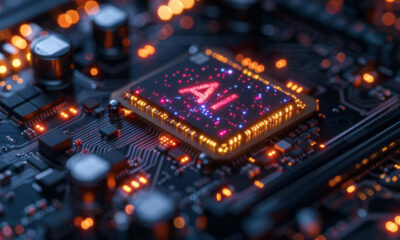Artificial Intelligence
Human Brain Project Releases New Paper on Exascale Computing Power

Scientists at the Human Brain Project (HBP) have outlined in a new research paper how advances in neuroscience require high-computing technology and will eventually need exascale computing power.
The HBP is the largest brain science project in Europe, and it is one of the biggest research projects ever funded by the European Union. The project investigates the brain and its diseases through the use of highly advanced methods from fields like computing, neuroinformatics, and artificial intelligence (AI).
Supercomputing as a Tool for Brain
Katrin Amunts is one of the scientists and Scientific Director of the HBP, Director of the C. and O. Vogt-Institute of Brain Research, Universitätsklinikum Düsseldorf and Director of the Institute of Neuroscience and Medicine (INM-1) at Research Centre Jülich.
“Understanding the brain in all its complexity requires insights from multiple scales E – from genomics, cells and synapses to the whole-organ level,” Amunts says. “This means working with large amounts of data, supercomputing is becoming an indispensable tool to tackle the brain.”
Thomas Lippert is Director of the Jülich Supercomputing Centre and leader of supercomputing in the HBI.
“It’s an exciting time in supercomputing,” Lippert says. “We get a lot of new requests from researchers of the neuroscience community that need powerful computing to tackle the brain’s complexity. In response, we are developing new tools tailored to investigating the brain.”
There are around 86 billion neurons that make up trillions of contact points in the human brain. By imaging an entire brain at cellular resolutions, data in the range of several Petabytes can be produced. An electron microscopy of the entire brain would result in more than one Exabyte of data.
“Brain research, medicine and information technologies face challenges that can only be addressed by joining the forces of all three domains,” Amunts adds.
Data Challenge of Neuroscience
The Human Brain Project’s research infrastructure EBRAINS is focused on addressing the big data challenge of neuroscience. Through this infrastructure, there are a wide range of tools, data-, and compute-services available to brain researchers. They can access supercomputing systems through the Fenix federated infrastructure, which has been set up by Europe’s leading Supercomputing Centres.
Europe is expected to deploy its first two exascale supercomputers within the next five years. The supercomputers will be acquired by the European High Performance Computing Joint Undertaking (EuroHPC JU), which is a joint initiative between the EU, European countries, and private partners.
“The brain research community stands ready to use these exascale systems,” Amunts concludes.












